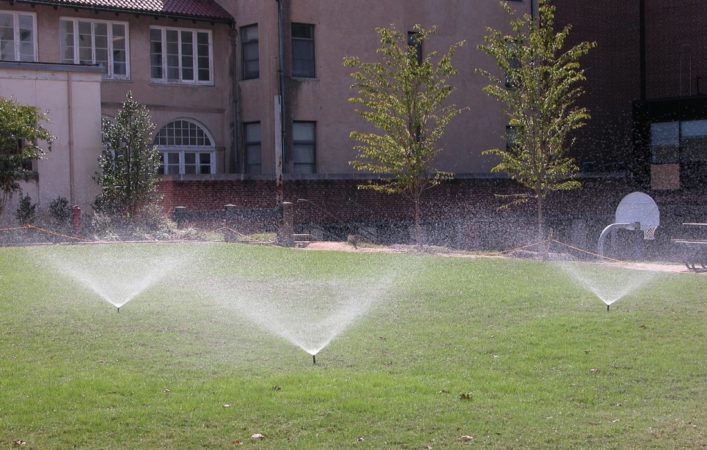
How your business can cope with water restrictions


Homeowners across South Africa are grappling with water restrictions during our biggest drought in over 20 years. But as a small business owner, you know that it’s even trickier to provide good customer service, maintain hygiene levels and stick to production timings when you have less water at your disposal. The good news is that there are many smart ways to save and reuse water – let us guide you through them:
Start with awareness
Water scarcity in South Africa is going to be a way of life so it makes sense to entrench a culture of water saving with your staff – it will save you money too. Educate yourself and pass on your knowledge to your staff. Show them ways to save water, appoint a monthly water saving champion and reward water saving behaviour. You can download free fact sheets from Waterwise to put on noticeboards or send via email. Put water conservation stickers and posters in bathrooms, kitchens, cafeterias and other places where employees get together.
Audit your premises
Start scrutinising your water bills – not only for being overcharged but to detect leaks as well. If there is a sharp spike in costs one month, you might have a leak somewhere. Know where your supply pipes run and where the shut off valves are. Check your metres at night or when they are not in use to monitor leakage. You could also go a step further and have a water audit done for your business to see how efficient your water usage is.
Rule out any leaks
One of the easiest and cheapest ways to save money and water is to not waste it in the first place! That means being vigilant about leaks and immediately fix pipes, taps, appliances and equipment that might be faulty. Also encourage your staff to report any leaks if you have very large premises.
Reusing and recycling water
If you have a home-based business or space on your premises, you should definitely investigate using a rainwater tank and/or a greywater system. You get a variety of slimline water tanks these days which will capture rainwater for manufacturing or irrigation use.
Waterwise bathrooms
If you can’t afford to update your fittings, remind staff to turn the tap off when they are finished washing their hands. The old trick of putting a brick in your toilet cistern works a charm but as the brick may disintegrate over time, rather go for a water bottle. If you can afford to, install water efficient devices such as controlled or waterless urinals and aerator or spray sink taps. An aerator mixes air with water and can reduce water consumption by up to 50%. If you own a guesthouse, water efficient showerheads can mean big savings.
Kitchens and canteens
Each time you replace or acquire a new kitchen appliance, look for the most water efficient kind and always use the water efficient settings for appliances such as dishwashers. Remind staff to not wash dishes under running water. If there is any water that can be saved during the production process, consider using it to water plants.
Cleaning methods
Remind your cleaning staff to use hose water sparingly when washing floors, machinery or vehicles. Make sure hoses have automatic switch-off valves as to not waste water unnecessarily. A hosepipe can spew as much as 18 litres of water a minute! Where possible, use a broom for scrubbing, not a hosepipe.
Saving on your garden
Your lawns and garden might be your pride and joy but think carefully about what is really necessary to run your business. There are various lovely indigenous, drought tolerant plants available which will look as nice as roses and a lush lawn. Rock gardens, mulching and succulents will be your no-irrigation friends.
SA businesses that are water saving innovators: Reward customers:
- Less water changes:Gauteng bakeries group Fournos opted for pressurised coffee machines and a water-wise baseline dishwasher – which only requires water changes four times a day.
- Back-up water supply: Tanaz Hair salon in Sandton keeps 10 to 20 litres of back-up water in drums in its basement and is looking into boreholes and water tankers.
- Backwashing swimming pools: Virgin Active began back-washing swimming pools twice a week, resulting in a saving of 20,000 litres of water per club. They also installed automatic sensor taps and water-saving showerheads.


